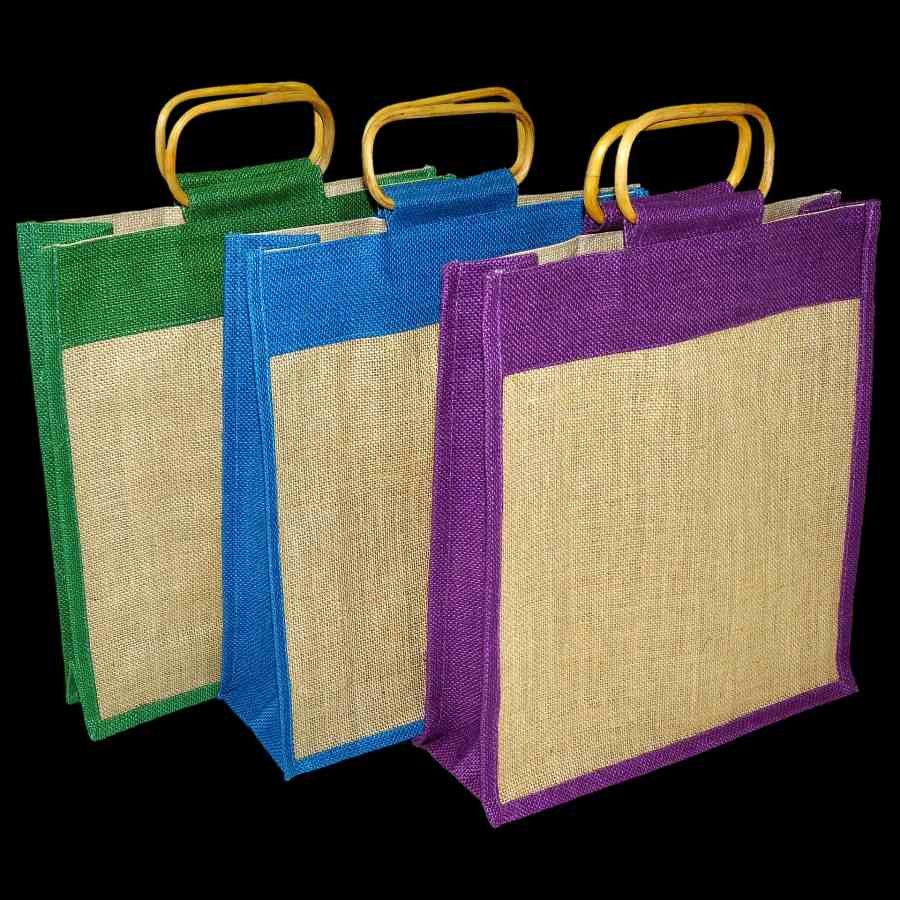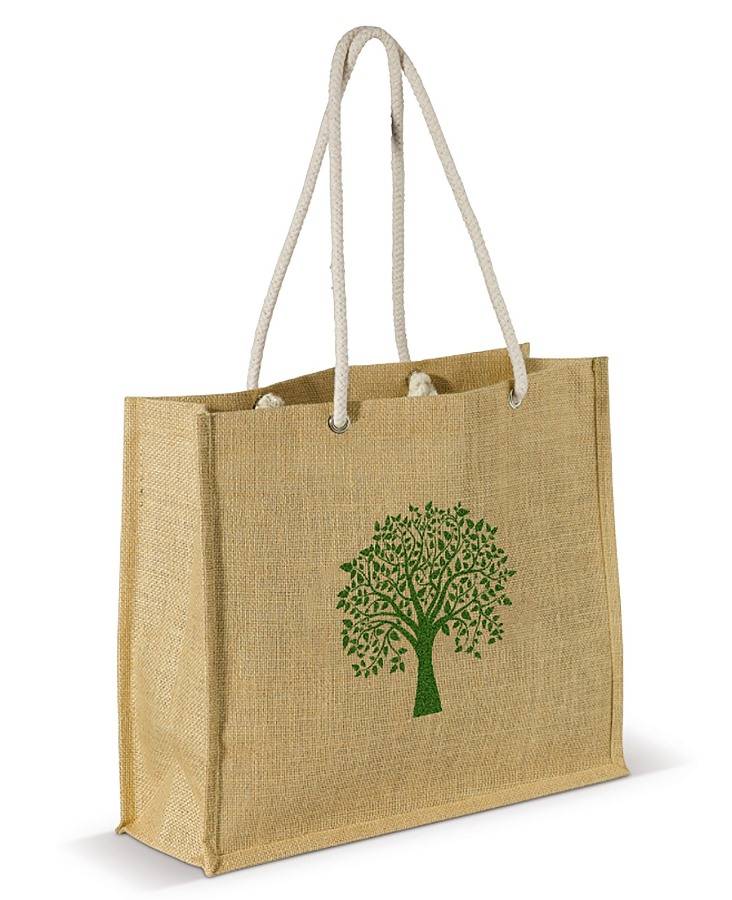Jute Bag Manufacturing Project Report and Business Plan in India
Hello friends, we are here today with a new topic of Jute Bag Manufacturing Project Report and Businss Plan.
Introduction
Are you planning to start a jute bag manufacturing business on a small scale probably from home? Check this interesting blog about jute bag making that includes a business plan with the manufacturing method, expenses, equipment, raw materials, etc.
If you see jute is a long, shiny, and soft vegetable fiber. It is also famous as ‘Golden fiber’. At present, it is one of the toughest of all-natural fibers obtainable throughout the world. Also, the jute fiber can be used again and again with the advantage that it is biodegradable.
Jute fabrics are strong, light, durable, attractive, and cheaper than other fabrics made from other fibers. Apart from that, these are anti-static and UV protective. Therefore, jute fabrics are the perfect raw materials for making jute bags.
The jute bag-making steps are easy. Additionally, there are many variations in the bags that are very widespread in the market. Moreover, the business needs a very small startup investment. It can be initiated even from home. Furthermore, it is a great revenue-generating opportunity for women, housewives, etc.
A guide to Jute Bag Manufacturing Project Report, and Business Plan in India

Market potential of Jute Bag Making Business
There are various types of jute bags which are seen nowadays in the market. According to the lining, there are majorly three different types –
- Unlaminated – Biodegradable
- Laminated – Food Grade LDPE, wipe clean, splash resistant,
- Muslin Lined
- Besides, a jute bag comes has been seen with a wide range of handle options. They are-
- Jute Handles
- Flat Cotton Strap
- Cotton webbing, filled with rope
- Cane Handles
- Drawstring
- Rope with eyelets
- According to the use, there are various jute bags available. They differ in pattern, size, and color. These are
- Calico Bags
- Jute Carry Bags
- Shopping Bag
- Conference Bag
- Ladies Purse
- Designer Bag
- Jute Conference Bags
- Promotional Bag
- Jute Drawstring Pouches
- Jute Wine Bottle Bags
- Juco Bags
Decorated jute bags and shopping bags are fast selling both in domestic and international markets. With the rise in population, the scope of business and industry expansion is also possible.
As bags are a significant item for humans, so the need for the product is steady in the market. So, the demand will be steady throughout the year. Hence it is projected that there is a good scope for the opening of such type of business with great export potential.
Starting a Jute Bag Making manufacturing business in India
In case if you miss this: Small Business Ideas with Low Investment.

Identify the demand
This is the most essential element you have to consider before starting a business. You must recognize the demand for the specific kind of jute bag in the local shops. Additionally, check the selling price, who are the manufacturers, and their marketing strategies. These all will aid you in preparing the business plan and beginning your jute bag-making business.
Design a perfect Jute Bag Making business plan
Even, if you begin the business on a small- scale like from home, then also you have to prepare a business plan. And your business plan must have a financial projection and analysis of startup expenses and marketing ideas. Also, include your business mission, target audience, and marketing ideas. As a jute bag owner, you should be in a position to deliver the right product at the proper cost to the potential consumer.
License, registrations, and permissions required to start a Jute Bag making business
You must register the business with ROC as per the structure of your business organization. Being a small startup, you can plan for a proprietorship type of organization. However, you even try with partnership, LLP, or INC companies as per your business and investment plan.
Usually, this type of business might not have any particular licenses from the Government authorities. However, verify with local rules and guidelines before beginning the business. Also, you check the need for upcoming tax liabilities as well.
Cost required to start Jute bag making business
Generally, the business must invest money for obtaining machinery, raw materials, and other properties including staff. Besides, you will be spending on marketing and distribution works. If you are starting it on a small scale, then it is recommended to start with savings. For large-scale set-up, you can plan to avail bank loans or contact venture capital investment.
Setting up a Jute Bag making business unit
For the jute bag-making unit around 500 sq ft of an area is enough. However, you must make the connection for electricity supply for operating the equipment. After choosing the area, you must design a floor plan. This is essential to allocate the entire space for the storage, production area, and admin area. You should keep someplace for office work that is needed to money receipts, raising invoices, etc.
Machinery required to start Jute Bag Making business
Though the jute bag-making business will not need any heavy machinery. There is some important machinery mentioned here for your easy reference.
- Wooden Printing Table
- The screen of Different Design
- Rubber Wiper
- Dye Paste Stirrer
- Water Drum
- Electric Fittings
- Cutting Table
- Wooden Working Table
- Cottage Steamer
- Tubes, Clips, Steel Spoons, Mugs, Roper, Bucket, Stools, etc.
- Lock Stitch Machine
- Scissors, Measuring tape and other Equipment
Raw materials required to start Jute Bag Making business
The chief raw materials for decorated and printed jute shopping bags are jute fabrics. Moreover, you must obtain the dyestuff, chemicals, printing gum, and auxiliaries. Also, you might need a PVC buckle and bamboo sticks, packing materials, sewing thread, labels, etc. You can obtain the raw materials very easily at the wholesale market for a reasonable price.
Procedure to start Jute Bag Manufacturing Process
First of all, you will have to procure the woven jute fabric by purchasing from the wholesale market or directly from manufacturers. Spread them on the printing surface and fix the necessary components.
Then you will have to print it by screen printing based on the design and color. After that, clean the printed fabric and make sure you dry under sunlight or by drier.
Then cut the printed fabric according to the planned design and sizes of the bag. Stitch the cut pieces using the lockstitch machine. Then, manually you have to attach the PVC buckle or bamboo stick, etc. Now the bags are complete for selling.
Quality control and specifications in Jute Bag Making
IS: 6753- – 1981 is for the fertilizers
IS: 8069- – 1981 is for the pesticides
HDPE woven sacks can also be manufactured according to the need and major customers.
Marketing strategies to promote your Jute Bag Manufacturing Business
Promotion is a very essential aspect of any product when you start a new business. Similarly for jute bags as well we have to check out various strategies to advertise the bags. Commonly, retail distribution is the conventionally used method to bring any product to the market. However, you have to consider the sales from various companies as well by following specific techniques.
Besides the traditional offline promotion, it’s important to focus on the online platforms as well in this technology era. You can plan to purchase a domain name that could suit your brand name and build a beautiful and appealing website. Also, register with social media like Facebook, Instagram, etc. for marketing your jute bag extensively.
Financial aspects in Jute Bag Making business
A: Fixed Capital:
Land & Building:
Workspace 1200 sq.mtrs on long term monthly rental basis Rs. 1800
Plant and Machinery:
a) Wooden Printing Table Rs. 25,000
b) Screen of Diff. Design Rs. 1,05,00
c) Rubber Wiper Rs. 1,250
d) Dye Paste Stirrer Rs. 14,400
e) Water Drum Rs. 3,800
f) Cottage Steamer Rs. 16,500
g) Tubes, Steel Spoons, Mugs, Bucket, Roper, Clips, Stools etc. Rs. 6,800
Total Rs. 78,250
Stitching Section:
a) Lock Stitch Machine Rs. 28,200
b) Wooden Working Table Rs. 4,000
c) Cutting Table Rs. 1,800
d) Electric Fittings Rs. 4,500
e) Scissors, Measuring tape and other Equipments
Rs. 2,800
Total Rs. 41,300
Total Machinery Rs. 1,19,550
Furniture and Fixture:
Office furniture like almirah, table, chair, rack etc. Rs.12,500
Total non-recurring expenditure/ fixed
Capital: Rs. 1,32,050.00
Working Capital per month:
Monthly expenses for Salary & Wages:
Manager cum Supervisor Rs. 3,000
Clerk cum-Accountant Rs. 2,000
Salesman Rs. 4,000
Peon/ Chowkidar Rs. 1000
Master Printer/ Designer Rs. 2,500
Master Cutter Rs. 2,200
Stitching Machine Operator Rs. 9,000
Skilled Printer Rs. 6,000
Unskilled Worker Rs. 6,000
Sum Rs. 3,5700
Add: Perquisite @ 20%: Rs. 7,140
Total Rs. 42,840
Raw Material Consumption per month: Rs. 1,0,8150
Monthly Other Expenses: Rs. 8,800
Total Working Capital per month: Rs. 1,59,790
Total Working Capital for 3 months: Rs. 4,79,370
Total Capital Investment: Rs. 6,11,420
Financial Analysis:
Cost of Production per year:
1. Total Recurring Expenditure Rs. 19,17,480
2. Depreciation on Plant & Machinery @ 15% p.a. Rs. 17,933
3. Depreciation on Furniture @ 10% p.a. Rs. 1,250
4. Interest on total Capital Investment @ 12% p.a. Rs. 73,370
Total Rs. 20,10,033
Turnover per year:
Printed & Decorated Jute Shopping Bags Rs. 26,25,000
Total Turnover (incl. tax) Rs. 26,25,000
Net Profit per year:
Turnover per year – Cost of production per year
= Rs. 2625000.00 – Rs. 20,10,033.00 = Rs. 6,14,967.00
Profit Ratio on Sale = 614967 x 100/2625000 =23.43%
Rate of Return = 614967 x 100 / 611420 =100.58%
Break Even Point Analysis:
Fixed Cost
1. Depreciation on Plant & Machinery Rs. 17,933
2. Depreciation on Furniture & Fixture Rs. 1250
3. Interest on Total Capital Investment Rs. 73,370
4. Rent Rs. 21,600
5. Insurance Rs. 18,000
6. 40% Salary & Wages Rs. 2,05,632
7. 40% of other expenses excluding rent & insurance Rs. 42,240
Total Rs. 3,80,025
Beak Even Point = Fixed Cost x 100/Fixed Cost +Profit = 3,80,025 x 100/3,80,025+6,14,967 = 3,80,02,500/9,94,992 = 38.19%.
- Handicraft Making at Home: A Small Profitable Business Idea
- Pet-Tech Startups: Innovations for Animal Lovers
- Tech Repair Services: Meeting the Demand for Gadget Maintenance
- Maximizing Rewards: Smart Credit Card Habits for Cashback and Points
- Ultimate Guide to Making Money from Goat Milk Business
- How to Start an Agricultural Value Added Product Business
- Value-Added Business Ideas for Greenhouse: The Best Ways to Make Profits with Greenhouse Farming
- How to Make Profits with Organic Country Chicken: Best Strategies for Beginners
- 10 Value-added Business Ideas for Millets: Low-investment and Highly Profitable
- Why Cleaning Service Business Becoming More Profitable in Metro Cities in India
- 10 Best Businesses to Start in Ayodhya for Profits
- Top Drone Business Ideas in India: Unlocking Aerial Innovation & Opportunities
- Top 10 Service Businesses You Can Start with No Money
- Ultimate Guide to Starting a Home-Based Advertising Agency Business
- Starting a Nail Salon Near Your Location: Check List, Business Plan, Licensing, and Opening Instructions
- Construction Company Name Ideas: Guide to Create New Construction Company Names
- 8 Best Small Businesses to Start in Hyderabad: Low-Cost and Profitable
- 10 Best Small Businesses to Start in Massachusetts: Low-Cost and Profitable
- 10 Best Small Businesses to Start in Maryland: Low-Investment and Profitable
- 10 Best Small Businesses to Start in Delaware: Low-Investment and Profitable
- 10 Best Small Businesses to Start in Connecticut: Low-Investment and Profitable
It will be useful for me.